A fatty liver meal plan is a structured approach to managing liver health through diet. This PDF guide provides expert recommendations‚ meal ideas‚ and practical tips to support liver wellness effectively.
What is a Fatty Liver Meal Plan?
A fatty liver meal plan is a structured guide designed to help individuals manage liver health through dietary adjustments. Often available as a PDF‚ it provides detailed meal ideas‚ recipes‚ and tips to support liver wellness. This plan focuses on promoting weight loss‚ reducing liver fat‚ and preventing further damage. By emphasizing whole foods‚ avoiding refined carbs‚ and limiting sugars‚ it helps individuals adopt a sustainable lifestyle. The plan is tailored to address the specific needs of those with fatty liver disease‚ offering a clear roadmap for improving liver function and overall health. It serves as a practical tool for making informed dietary choices.
Importance of a PDF Guide
A PDF guide for a fatty liver meal plan is an essential resource for individuals seeking to manage liver health. It provides a comprehensive‚ easy-to-follow roadmap for dietary changes‚ ensuring clarity and convenience. The guide often includes detailed meal plans‚ shopping lists‚ and recipes tailored to reduce liver fat and promote overall wellness. Its portability and accessibility make it a valuable tool for staying on track with dietary goals. Additionally‚ a PDF guide offers expert-backed information‚ helping users understand the rationale behind specific food choices and lifestyle adjustments. This structured approach empowers individuals to make informed decisions‚ fostering long-term adherence to a healthy lifestyle.
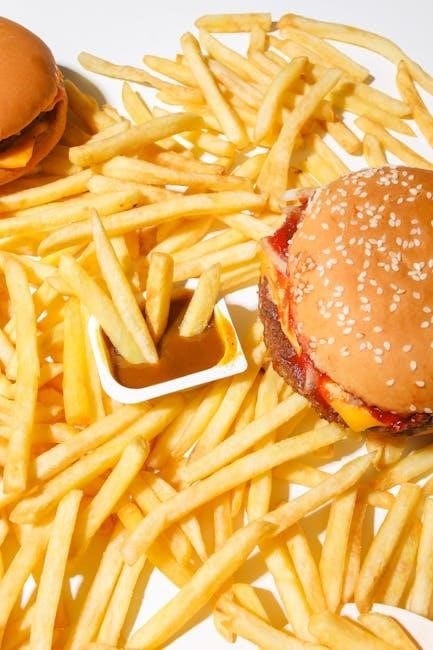
Understanding Fatty Liver Disease
Fatty liver disease occurs when excess fat accumulates in liver cells‚ potentially leading to inflammation and serious health complications. A healthy diet plays a crucial role in managing this condition effectively.
What is Fatty Liver Disease?
Fatty liver disease occurs when excess fat builds up in liver cells‚ causing potential inflammation and damage. It is primarily categorized into two types: alcoholic and non-alcoholic. Symptoms are often mild or absent but may include fatigue‚ abdominal swelling‚ and discomfort. The condition is strongly linked to obesity‚ diabetes‚ and high cholesterol. If left untreated‚ it can progress to more severe stages like non-alcoholic steatohepatitis (NASH) or cirrhosis‚ which are irreversible and life-threatening. Early intervention through dietary changes and weight management is critical to preventing progression and promoting liver health.
Causes and Risk Factors
Fatty liver disease is often linked to excess fat accumulation in liver cells. Key causes include obesity‚ insulin resistance‚ and metabolic syndrome. Risk factors such as diabetes‚ high cholesterol‚ and excessive alcohol consumption also contribute. A sedentary lifestyle and poor dietary habits further increase the likelihood. While non-alcoholic fatty liver disease (NAFLD) is the most common form‚ alcoholic fatty liver disease arises from heavy alcohol use. Genetic predisposition and certain medications can also play a role. Early identification of these factors is crucial for preventing progression and managing the condition effectively. Understanding these causes and risks helps in implementing tailored dietary and lifestyle changes.

Benefits of a Fatty Liver Meal Plan
A well-structured fatty liver meal plan helps reduce liver fat‚ improve overall health‚ and promote sustainable weight loss while supporting liver function and energy levels naturally.
How Diet Impacts Liver Health
Diet plays a crucial role in liver health‚ as it directly influences fat accumulation and inflammation. A balanced diet rich in fruits‚ vegetables‚ and whole grains supports liver function‚ while processed foods and refined sugars can worsen fatty liver disease. Refined carbohydrates‚ such as white bread and pasta‚ contribute to increased liver fat. In contrast‚ foods high in antioxidants and omega-3 fatty acids help reduce inflammation and promote healing. Avoiding sugary drinks and alcohol is essential‚ as they exacerbate liver damage. By making informed dietary choices‚ individuals can significantly improve liver health and reduce the risk of complications. A well-planned diet is a cornerstone of managing fatty liver disease effectively.
Strategies for Sustainable Weight Loss
Sustainable weight loss is key to managing fatty liver disease. Portion control and mindful eating are essential to avoid overconsumption. Incorporating regular physical activity‚ such as walking or swimming‚ helps burn fat and improve metabolism. Eating smaller‚ frequent meals throughout the day can stabilize blood sugar levels and prevent cravings. Prioritizing whole‚ nutrient-dense foods over processed options supports long-term weight management; Staying hydrated and getting adequate sleep also play roles in maintaining a healthy weight. By combining a balanced diet with consistent exercise‚ individuals can achieve gradual and sustainable weight loss‚ which is critical for reducing liver fat and improving overall health. These habits foster a lifestyle change rather than a temporary fix.
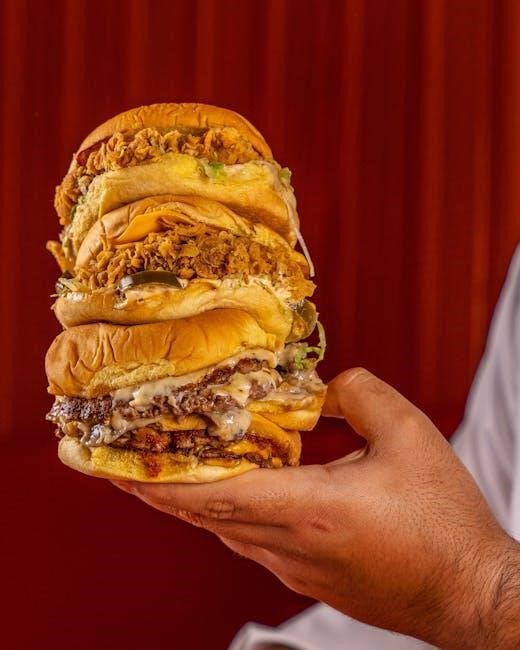
Foods to Eat for a Healthy Liver
Focus on fruits‚ vegetables‚ whole grains‚ and lean proteins to support liver health. Incorporate healthy fats like avocados and olive oil‚ and opt for omega-3 rich foods to reduce inflammation.
Fruits and Vegetables
Fruits and vegetables are essential for a healthy liver‚ providing vital nutrients and fiber. Incorporate colorful options like berries‚ citrus fruits‚ leafy greens‚ and cruciferous vegetables‚ which are rich in antioxidants and fiber. These foods help reduce inflammation and support the liver’s natural detoxification processes. Aim for a variety to ensure a broad range of vitamins and minerals. Berries‚ such as blueberries and strawberries‚ are particularly beneficial due to their high antioxidant content. Leafy greens like spinach and kale support liver function‚ while cruciferous vegetables like broccoli and Brussels sprouts aid in detoxification. Include at least 5 servings daily and experiment with creative ways to add them to meals and snacks for a balanced diet.
Whole Grains and Fiber
Whole grains and fiber are crucial for a healthy liver and digestion. They provide sustained energy‚ reduce inflammation‚ and support weight management. Opt for whole grains like oats‚ quinoa‚ and brown rice‚ which are rich in nutrients and fiber. These foods help regulate blood sugar levels and prevent excessive fat storage in the liver. Incorporate high-fiber options such as whole-grain bread‚ barley‚ and legumes into your meals. Fiber aids in detoxification and promotes a healthy gut microbiome. Aim for at least 25-30 grams of fiber daily to support liver health and overall well-being. Avoid refined grains like white bread and pasta‚ as they can worsen liver fat accumulation.
Lean Proteins and Omega-3s
Lean proteins and omega-3s are essential for a fatty liver diet‚ supporting liver repair and reducing inflammation. Incorporate sources like chicken‚ turkey‚ and fish such as salmon and mackerel‚ which are rich in omega-3 fatty acids. These nutrients help lower liver fat and improve overall health. Plant-based options like tofu‚ lentils‚ and edamame are also excellent choices. Omega-3s found in flaxseeds and walnuts further aid in reducing liver inflammation. Avoid processed meats and opt for grilled‚ baked‚ or steamed proteins to maintain a healthy liver. Balancing protein intake with omega-3s supports liver function and promotes a sustainable diet plan. This combination is vital for managing fatty liver disease effectively.
Healthy Fats and Plant-Based Oils
Healthy fats and plant-based oils are crucial for a balanced fatty liver diet. Avocados‚ nuts‚ seeds‚ and olive oil provide essential nutrients without harming the liver. These fats support energy production and reduce inflammation. Use olive oil for cooking and dressings‚ and incorporate flaxseed oil for its omega-3 benefits. Avoid processed fats and trans fats‚ which worsen liver conditions.Moderation is key‚ as excessive fat intake can still strain the liver. Pair healthy fats with whole grains or vegetables to enhance nutrient absorption. Plant-based oils like coconut and avocado oil are also excellent choices. Incorporating these fats supports liver health and promotes overall well-being.
Nuts‚ Seeds‚ and Antioxidants
Nuts and seeds are rich in healthy fats‚ protein‚ and antioxidants‚ making them ideal for a fatty liver diet. Almonds‚ walnuts‚ chia seeds‚ and flaxseeds are excellent choices‚ offering omega-3 fatty acids and fiber. Antioxidants like vitamin E and polyphenols in these foods help reduce liver inflammation and oxidative stress. Incorporate a variety of nuts and seeds into meals or snacks‚ but consume them in moderation due to their calorie density. Pairing them with fruits or vegetables enhances their nutritional benefits and supports liver health. These foods are versatile and can be added to salads‚ smoothies‚ or eaten as snacks for a balanced diet.
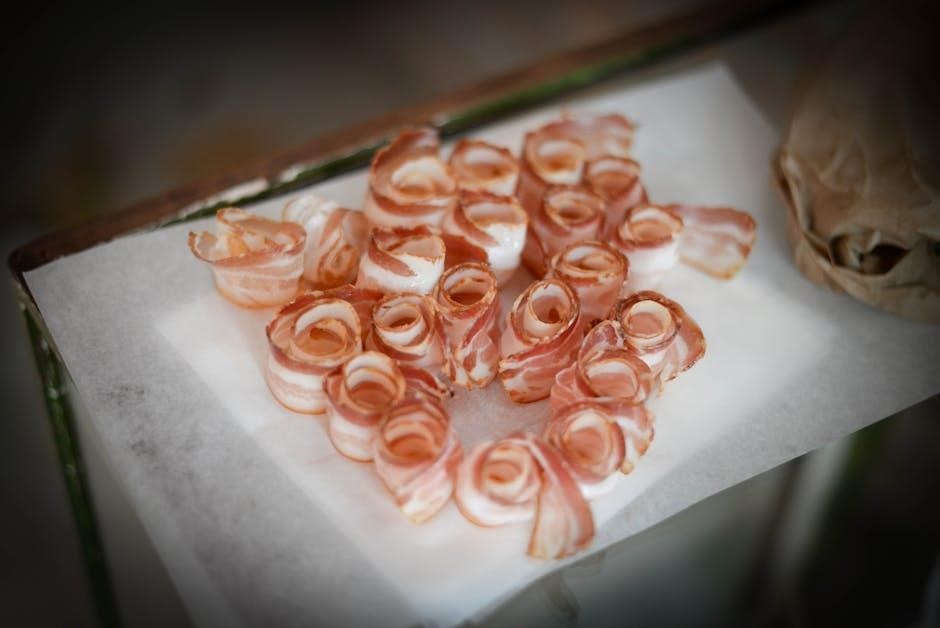
Foods to Avoid
Eliminate sugary drinks‚ refined sugars‚ processed foods‚ and trans fats to reduce liver fat accumulation. Limit alcohol consumption‚ as it exacerbates liver damage and inflammation.
Sugary Drinks and Refined Sugars
Sugary drinks and refined sugars are major contributors to liver fat accumulation. These substances trigger insulin resistance‚ promoting fat storage in the liver. Avoid sodas‚ sweetened beverages‚ and foods with added sugars like pastries and candy. Opt for natural sources of sweetness‚ such as fruits‚ to satisfy cravings without harming liver health. Reducing sugar intake helps lower calorie consumption and supports weight management‚ both critical for managing fatty liver disease. Always check nutrition labels to identify hidden sugars in processed foods‚ as they can sabotage your efforts to improve liver wellness. Limiting these items is essential for maintaining a healthy liver and overall well-being.
Processed Foods and Trans Fats
Processed foods and trans fats are detrimental to liver health‚ exacerbating fatty liver disease. These items often contain unhealthy fats‚ sodium‚ and preservatives that promote inflammation and fat accumulation. Avoid foods like fried snacks‚ frozen meals‚ and baked goods‚ which are high in trans fats. Opting for whole‚ unprocessed foods ensures a cleaner diet that supports liver function. Reading nutrition labels helps identify harmful ingredients‚ enabling better choices. Limiting processed foods reduces liver strain and aids in maintaining a balanced‚ healthy lifestyle. This step is crucial for managing fatty liver disease and preventing further complications.
Alcohol and Its Impact
Alcohol consumption significantly worsens fatty liver disease‚ as it directly damages liver cells and increases fat accumulation. Even moderate drinking can exacerbate inflammation and scarring‚ potentially leading to cirrhosis. For individuals with fatty liver‚ complete abstinence from alcohol is strongly recommended. The liver processes alcohol inefficiently‚ making it a primary contributor to disease progression. Reducing or eliminating alcohol intake is crucial for recovery and preventing irreversible damage. Consulting a healthcare provider can provide personalized guidance on managing alcohol’s impact and developing a tailored strategy for liver health improvement. This step is essential for halting disease progression and promoting overall well-being.

Sample 7-Day Meal Plan
This structured plan provides balanced nutrition‚ with daily meal ideas to support liver health. It includes breakfast‚ lunch‚ dinner‚ and snack options‚ along with recipes and guides.
The 7-day meal plan is designed to promote liver health by focusing on nutrient-dense foods. Each day includes balanced meals with specific portion sizes to ensure optimal nutrition. Breakfast options feature whole grains‚ fruits‚ and lean proteins‚ while lunches emphasize vegetables‚ lean meats‚ and whole grains. Dinners are balanced with fish‚ beans‚ or tofu‚ alongside steamed vegetables. Snacks include nuts‚ seeds‚ and fresh fruits. The plan avoids processed foods‚ refined sugars‚ and unhealthy fats‚ aligning with Mediterranean diet principles. It also offers flexibility‚ allowing users to swap ingredients while maintaining nutritional benefits. The guide includes recipes and tips for meal preparation and storage to support adherence. Breakfast is a crucial meal to kickstart your day while supporting liver health. Opt for whole‚ nutrient-rich foods like oatmeal with fresh berries‚ avocado toast on whole-grain bread‚ or a smoothie made with spinach‚ bananas‚ and almond milk. Eggs are another excellent option‚ paired with sautéed vegetables like spinach or mushrooms; Greek yogurt with chia seeds and a drizzle of honey is also a satisfying choice. Avoid sugary cereals and processed pastries. For a quick meal‚ try a breakfast burrito with scrambled eggs‚ black beans‚ and salsa wrapped in a whole-grain tortilla. These recipes are designed to be delicious‚ easy to prepare‚ and liver-friendly. Lunch should focus on balanced‚ nutrient-dense meals to support liver health. Consider whole-grain wraps with grilled chicken‚ avocado‚ and mixed greens‚ or a hearty quinoa salad with roasted vegetables like bell peppers and zucchini. Lentil or vegetable-based soups are also excellent choices‚ paired with a side of steamed broccoli. For snacks‚ opt for fresh fruits like apples or berries‚ a handful of raw nuts‚ or carrot sticks with hummus. Smoothies made with spinach‚ Greek yogurt‚ and chia seeds are another convenient option. Avoid processed snacks and sugary beverages‚ instead choosing water‚ herbal teas‚ or unsweetened almond milk to stay hydrated and satisfied. Dinner options should emphasize lean proteins and fiber-rich vegetables. Grilled fish‚ such as salmon or cod‚ paired with steamed spinach‚ Brussels sprouts‚ or asparagus‚ makes a nutritious meal. Chicken or turkey breast‚ seasoned with herbs‚ can be served alongside roasted sweet potatoes and green beans. Plant-based options like lentil or vegetable stir-fries with brown rice are also excellent. For desserts‚ opt for fresh fruit salads with berries‚ citrus‚ or apples‚ as they provide natural sweetness and antioxidants. Avoid refined sugars and processed desserts. Instead‚ consider Greek yogurt with a drizzle of honey or dark chocolate (70% cocoa) for a healthier treat. Stay hydrated with herbal teas or water throughout the evening. Combining a balanced diet with regular physical activity is crucial for sustainable weight loss. A structured meal plan helps maintain progress while supporting liver health. Regular physical activity is essential for managing weight and improving liver health. Aim for at least 150 minutes of moderate-intensity exercise‚ such as brisk walking or cycling‚ per week. Strength training and high-intensity workouts can also help reduce liver fat and improve insulin sensitivity. Even small amounts of daily movement‚ like short walks‚ can make a difference. Consistency is key to sustaining weight loss and promoting overall well-being. Combining exercise with a healthy diet creates a balanced approach to managing fatty liver disease effectively. Always consult a healthcare provider before starting a new exercise program‚ especially if you have underlying health conditions. A balanced diet is crucial for managing fatty liver disease. Focus on whole‚ nutrient-rich foods like fruits‚ vegetables‚ whole grains‚ lean proteins‚ and healthy fats. Avoid sugary drinks‚ refined carbohydrates‚ and processed foods‚ which can worsen liver fat. Incorporate foods high in antioxidants and omega-3s‚ such as nuts‚ seeds‚ and fatty fish‚ to reduce inflammation. Portion control and mindful eating help maintain a healthy weight‚ further supporting liver health. Regularly reviewing your diet with a healthcare provider or dietitian ensures you stay on track and make adjustments as needed for long-term success. Consistency in following a balanced meal plan is vital for improving and maintaining liver function. Regularly tracking liver enzymes and scheduling medical check-ups helps assess the effectiveness of your fatty liver meal plan. Adjustments can be made based on progress and professional advice.
Monitoring liver enzyme levels is crucial for assessing the effectiveness of your fatty liver meal plan. Elevated enzymes like ALT and AST indicate liver stress‚ while lower levels suggest improvement. Regular blood tests‚ typically every 3-6 months‚ help track progress and ensure the diet is working. By maintaining a healthy diet and lifestyle‚ individuals can reduce enzyme levels and improve liver health. Consistent monitoring also allows healthcare providers to make necessary adjustments to the treatment plan‚ ensuring optimal outcomes. This approach supports long-term liver wellness and prevents further complications. Always consult a healthcare professional for accurate interpretations of test results. Regular medical check-ups are essential for managing fatty liver disease effectively. These visits allow healthcare providers to monitor liver health‚ track enzyme levels‚ and assess overall progress. During check-ups‚ doctors may recommend imaging tests or blood work to evaluate liver condition improvements. They also provide personalized dietary advice and address any concerns. Consistent medical supervision ensures the meal plan is tailored to individual needs‚ promoting better adherence and outcomes. Regular check-ups also help prevent complications like NASH or cirrhosis. By maintaining open communication with healthcare professionals‚ individuals can achieve sustainable liver health and reduce long-term risks associated with fatty liver disease. This collaborative approach is key to successful management. Refined carbs‚ like white bread and pasta‚ increase liver fat. Reducing them supports overall liver health and helps manage fatty liver disease effectively. Refined carbohydrates‚ such as white bread and pasta‚ directly contribute to increased liver fat. These foods cause rapid spikes in blood sugar and insulin levels‚ promoting fat storage in the liver. Over time‚ this can lead to the progression of fatty liver disease‚ potentially resulting in inflammation and more severe liver damage. Reducing or eliminating refined carbs from your diet is crucial for managing liver health and preventing further complications. Incorporating whole‚ nutrient-dense foods instead helps stabilize blood sugar and supports fat metabolism‚ reducing the risk of liver fat accumulation. This dietary adjustment is a key component of a successful fatty liver meal plan. The Mediterranean diet emphasizes whole foods‚ vegetables‚ fruits‚ whole grains‚ and healthy fats like olive oil. It avoids processed foods and refined carbs‚ benefiting liver health. The Mediterranean diet offers significant benefits for liver health by reducing inflammation and fat accumulation. Its focus on antioxidants‚ omega-3 fatty acids‚ and fiber helps detoxify the liver and improve metabolic function. Additionally‚ the diet’s emphasis on whole‚ nutrient-dense foods aids in weight management‚ which is crucial for preventing fatty liver progression. By avoiding processed foods and refined sugars‚ it minimizes liver strain‚ promoting a healthier balance of liver enzymes. This dietary approach not only supports liver health but also contributes to overall well-being‚ making it an ideal choice for those managing fatty liver disease. Regular adherence can lead to noticeable improvements in liver function. Adapting to a healthy diet is crucial for managing fatty liver disease. This guide provides a comprehensive approach to support liver health through informed food choices effectively. To achieve long-term success with your fatty liver meal plan‚ consistency and patience are key. Incorporate a variety of whole foods‚ including fruits‚ vegetables‚ lean proteins‚ and whole grains‚ to ensure a balanced diet. Avoid processed foods and sugary drinks‚ as they can hinder progress. Regular physical activity‚ such as walking or yoga‚ can complement your dietary efforts and aid in weight management. Tracking your meals and progress can help maintain accountability. Additionally‚ staying hydrated is essential for overall health and liver function. By following these tips and consulting your healthcare provider‚ you can effectively manage fatty liver disease and improve your well-being. Consulting a healthcare provider or dietitian is crucial when creating a fatty liver meal plan. They can tailor the plan to your specific needs‚ ensuring it aligns with your health goals. A professional can also monitor your progress and adjust the diet as needed. Regular check-ups help track liver enzyme levels and overall health improvements. Additionally‚ a dietitian can provide personalized recipes and strategies to maintain a balanced diet. Their expertise ensures you receive accurate and safe guidance‚ maximizing the effectiveness of your fatty liver management. This collaborative approach supports sustainable weight loss and liver health‚ helping you achieve long-term wellness.Overview of the 7-Day Plan
Breakfast Ideas and Recipes
Lunch and Snack Options
Dinner Recipes and Desserts

Managing Weight Loss
Exercise and Physical Activity
Maintaining a Balanced Diet
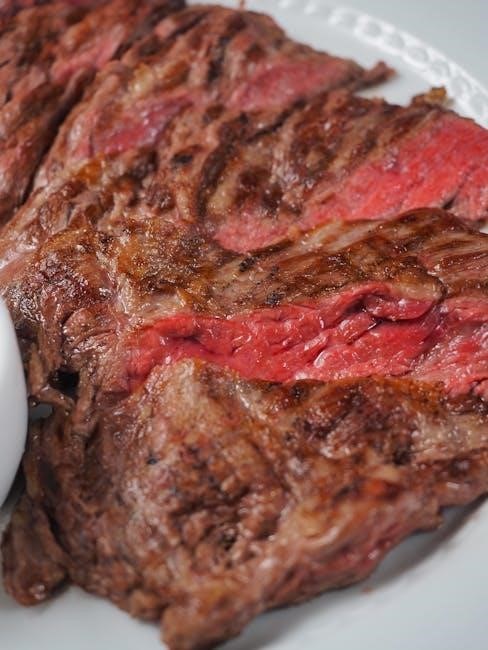
Monitoring Progress
Tracking Liver Enzymes
Regular Medical Check-Ups

Avoiding Refined Carbohydrates
Impact on Liver Fat
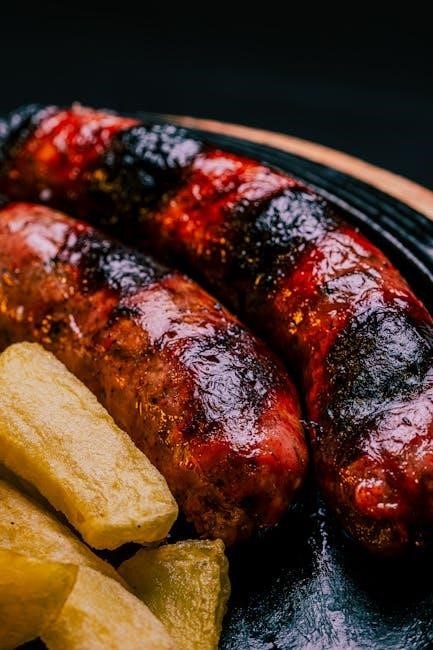
Mediterranean Diet Principles
Benefits for Liver Health
Final Tips for Success
Seeking Professional Advice